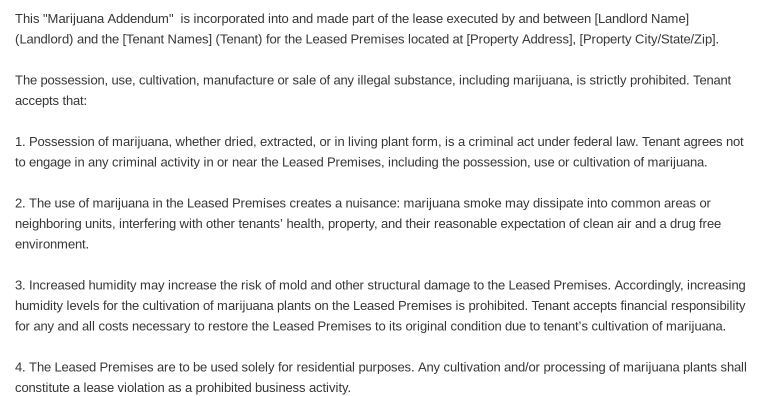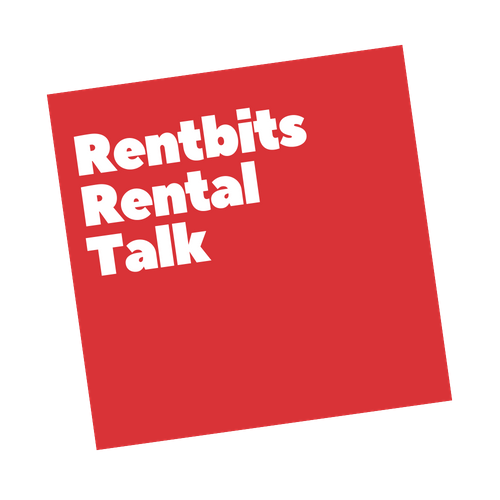In our very first episode of Rentbit Rental Talk, we speak with Marc Cunningham, the President of Grace Management, one of the largest property management companies in Colorado. In this episode, Marc discusses what to add within your lease agreement when dealing with marijuana, pets and other challenges that most landlords fail to recognize.
Marc Cunningham Podcast Transcript
[00:00:00] – Dan Daugherty
Welcome to the very first Rentbits Rental Talk podcast. I’m your host, Dan Daugherty and I am very excited to have our first ever guest Mark Cunningham who I’ve known for almost a decade now. He’s the president of Grace Management and he’s been there for 23 years. His dad actually started the business 40 years ago or so is that right Marc?
[00:00:23] – Marc Cunningham
Yeah 1978. We’ve been around for a while.
[00:00:26] – Dan Daugherty
1978. Grace Management they’re now one of the largest property management firms here in Denver Colorado. Marc thank you for joining us.
[00:00:36] – Marc Cunningham
Thank you to and appreciate the opportunity to be with you here on your first inaugural podcast.
[00:00:42] – Dan Daugherty
Thank you so much. Well let’s let’s jump right into it. We can talk about Colorado without first talking about marijuana or or Mary Jane as most of the kids call it these days. Most of my listeners know that a couple of years ago Colorado legalized recreational use of marijuana. That poses a lot of problems for landlords and property managers where we get a lot of questions where they ask can they not allow marijuana smoking within their rental property, their condo their house. What are the limitations or the rules on marijuana?
Marijuana Rental Clauses
[00:01:27] – Marc Cunningham
Yeah, great question and certainly a very big topic right now. We deal with this on a very very regular basis. So couple of things to keep in mind as the law was passed in Colorado and this is Colorado specific. But as the law was passed in Colorado it had a carve out exemption specific for our industry because as landlords we’re very concerned we don’t necessarily want to allow individuals in the property to smoke or worse yet to grow marijuana. So there is a carve out in the the ruling for that the law for that. But in order to not allow all landlords have to do it it’s not a big deal. But you know make sure you get this one is you have to specifically not allow it in your lease. So if your lease is silence it doesn’t say anything about marijuana in a lease than by default you’re allowing that argument could could be made. So what you want to make sure you do what landlords want to do is in the lease. You want to have a specific provision. And really we think it should be more than a provision it should probably be an addendum. For example we use what’s commonly referred to as a crime free drug free housing debt. And so this is an addendum to the lease and what this addendum going to say amongst other things is the growing smoking of marijuana is although legal in the state of Colorado is prohibited are the terms of this lease agreements and violators may be a victim just something as straightforward as that and many leases do already have this crime free drug free addendum. And when this law was passed in Colorado many landlords thought you know what well I’m ok. I’ve already got a crime free drug free addendum that says you know illegal use of drugs is not allowed up covered. Well the problem came when suddenly marijuana was its a legal drug or the state. So the argument again could be made legally that while you’re your drug free addedum doesn’t cover marijuana because it just says illegal drugs. So going back to the steps away lord wants to take. They want to make sure they have that crime free drug free addendum and that addendum needs to specifically state that marijuana is not going to be allowed in the property as long as they do those two things then they’re going to cover themselves and to keep the tenant from doing that and you kind of want to think of it in terms of like smoke. Right. I mean smoking I just mean like a cigarette smoking cigarettes is legal. That’s that’s totally legal to do. But can a landlord prohibited it. Of course but has to be in the lease while smoking marijuana is legal in Colorado. Can a landlord prohibit it absolutely but they have to specifically prohibited in the terms of the lease.
Marijuana Lease Addendum
Click on the image below to go to complete marijuana lease addendum.
[00:04:12] – Dan Daugherty
That is so interesting so I think so many landlords they might just have something written, that says absolutely no smoking, no smoking tobacco, no smoking marijuana no smoking, no doing drugs anything they’re safe. But hearing you in I didn’t even think about this. But that would not eliminate a tenant from growing marijuana. within your apartment or condo or a house. You have to specifically say that you cannot have any drugs whatsoever and you cannot grow or smoke marijuana within your property correct.
[00:04:47] – Marc Cunningham
Correct. The growing is that’s the real danger. I mean whether or not a landlord wants to allow their tenants to ingest or to smoke marijuana that’s that’s their call. But the growing of marijuana in a residential rental property can be very very damaging to the property. So you know forget the morality of it. That’s our what we’re looking at here. We’re looking at the fact that if they’re going to have that in there you’ve got a high degree of humidity they’re tapping into electrical it can do significant damage to property. So we highly recommend that landlords do not allow their tenants to grow marijuana and that’s another reason you want to do these inspections because if you’ve got a single family house and someone’s going to be looking for a property that they can kind of come into and illegally grow marijuana or they’re looking for single family homes that’s what they want. So it’s important to be doing inspections on these things to ensure that just because it’s in the lease doesn’t mean they’re not going to do it you still need to be checking to ensure that these tenants aren’t sneaking it in either.
Should you have a Pet Policy?
[00:05:48] – Dan Daugherty
Very interesting. Well speaking about potentially ruining a property I don’t know if you know this but I had about nine rental properties when I first moved out here to Colorado in 2002 and eight of the nine I would allow pets and I simply just allowed pets but they had to be a certain size and breed. But I just collected a pet policy a pet deposit and I thought I was a good. It seemed I was a good. Knock on wood, I never had any problems with any of the pets but after doing additional research it sounds like that was probably a bad idea for me to have a pet deposit. I think you you agree with that I think I heard a video of you saying that you should not accept a pet deposit but something else. Can you elaborate on that a little more.
[00:06:42] – Marc Cunningham
Yeah asolutely.On the Pet side of things you know keep in mind in Colorado about 75 percent of tenants come with pets. So if you as a landlord are saying hey we’re not going to take hands on this property you’re cutting your potential tenant markets by 75 percent. That’s a big big deal. So we do recommend to our landlords to accept pats you know to keep it have restrictions in place you can have breed restrictions and size restrictions and age restrictions. But generally speaking you want to be considered somewhat of a pet friendly landlord and pets typically speaking when a landlord does their due diligence don’t cause that damage as it relates to when you decide to allow a pet. The other question comes up with gosh should I charge a pet deposit. And you really don’t want to charge a pet deposit you know give me an example of why you don’t want it let’s say let’s say that house that you just said Dan you’ve got you. You have a house. You’re the landlord and you’re showing it to a prospect and you are kind of ambivalent about it. And so it’s running for a thousand dollars a month let’s say and let’s pretend the security deposit is equal to one month’s rent. So you’re showing a prospect this house and they say well gosh this is great and I’d love to rent it from you. And what’s the rent you say. Thousand dollars. They say well what’s the deposit. Thousand dollars they say oh well I I do have a pet as well. And you say you know what. No prob. I love pets. All I’m going to do those to charge an additional five hundred pet deposit so you can pay me a thousand dollar security deposit. Five hundred dollar pet deposit is great we’re going to go. They signed a lease. They move in. They pay the deposit of a thousand bucks they paid in a pet deposit of five hundred. Everybody’s happy. Fast forward to the end of the lease. So 12 months comes and goes tenant moves out and you do a walk through that property and it’s OK. But the problem is they didn’t they didn’t pay last month’s rent. So they owe you now a thousand dollars in back rent in addition to that they didn’t pay their utility bill. There’s a hole in the wall and they’ve got a late fee. And so they owe you some other funds and that the total amount they owe you happens to be one thousand five hundred bucks. You think great. I’ve got a deposit of 1500. They only want $1500 in back rent. Legal fees are going to retain that. And we’re all we’re all good. Well now here’s where the problem lies. Because if we go back to your original lease agreement you collected a thousand dollars in security deposit and the other 500 you collected was what deposit pet deposit. So the question comes up can you use a pet deposit for damages that are not pet specific. And the answer is No. So in that scenario I just explained what you would find yourself having to do is write a check back to your vacating tenants for five hundred bucks because their pet didn’t cause any of the damage or the deductions to the deposit you’re trying to retain. So ideally what you should have done in that scenario is to go back to our conversation on day one. People are thinking of moving in and they say well gosh I’ve got a pet and you say well no problem you can bring your pet in. But what we’re going to do is we’re going to increase the security deposit by 500 dollars. So now instead of having a thousand dollar deposit the 500 dollar pet deposit you simply have a one thousand five hundred dollars security deposit. Now legally speaking you can use that deposit for any damages that are in the property whether it’s rent owed whether it’s damage to the property related or not. Anything you can apply that to per the terms of your lease agree it
[00:10:19] – Dan Daugherty
That makes much more sense than having a separate head deposit but so many landlords and I’m assuming even some property managers may may just have a separate pet deposit. Do you see that quite often?
[00:10:33] – Marc Cunningham
So it’s so common. Yeah because it sounds great. I mean when you think about it ell I’ll just charge a pet depost. So this is one of the this is the one of the things we teach property managers as well as hey it’s not you’re not working in the best interest of your client if you’re charging at pet deposit because who wants to have to write that check back to a tenant who maybe didn’t pay rent simply because you made what amounts to a clerical error in labeling it a pet deposit. And another question that comes up commonly is from landlords as well. Can I just make it a nonrefundable pet deposit. And you can make it a non-refundable fee but what you want to be careful of is the word refundable and the word deposits mean opposite things perk per state law. So if you call it a non-refundable deposits and you stand in front of a judge a judge is going to say well there’s no such thing as a non-refundable deposit. Either it’s non-refundable or it’s a deposit but it can’t be both. So therefore the tenant’s getting it back. So you could that if you go to the same example you could say that 10. Well you know what. There’s going to be a thousand dollar security deposit which is refundable and there’s going to be a five hundred dollar non-refundable fee. You could do that. So there’s no right or wrong with that. But you want to be cautious to ensure you do not label anything and non-refundable deposits because that’s that will get you into trouble again.
[00:12:00] – Dan Daugherty
That’s a good point. Good check. What are they. So if you look at me talk about the marijuana we talked about pets those are two major ones specifically in Colorado. What are some other important clauses that you recommend landlords adding within their acontractual agreement with their tenants.
[00:12:19] – Marc Cunningham
Yeah I’ll give you two quick ones and the first one relates to access of the property particularly speaking for inspections. Let’s go back to our our marijuana issue. Let’s pretend that you as a landlord suspect that maybe that tenant is growing marijuana in the base. Well how do you get in taxes the property can you just go walk up and knock on the door and say you’d like to do an inspection. No you really can’t do that. So you want to ensure that your lease agreement has a clause that specifically states what kind of notice you as a landlord need to give you access to property. You want to have a very very specific so can’t just say with reasonable notice. Landlord may access the property is what’s reasonable to one person may be unreasonable to another. So ideally you want to have a clause in your lease that says something to the effect of landlord may access property with a 48 hour written notice to tenant, therefore if you need to access the property whether it be to inspect to show it to a prospective buyer or to repair something whatever it is you just need to give a 48 hour notice to your tenant and you can access the property.
[00:13:24] – Dan Daugherty
Can that be in the form of an email, or a posted on the door?
[00:13:31] – Marc Cunningham
Depends on what your lease says. So your lease should define that your lease would want to say note and it would have enough this will be another section of the lease for talks about notices what what are acceptable types of notices so you ideally want to have that say any notice given is legal per call or per the terms of this lease whether it be written phone or email. But you would define that per the terms of the lease. We had a instance not too long ago here where we were doing a regular property inspection as an occupied property, a single family home and we have a third party inspector who does all these inspections for us and they look for things like lease violation issues deferred maintenance that type of stuff. He came into my office after the inspection said Mark got a strange one here I was doing the property inspection and everything was going great. It’s two kind of younger guys single family home and were walking to the property viewing was great. We get down to the basement. It’s an unfinished basement in half the basement there was kind of a door partitioning off to the other half of the basement and the door was locked and I said to the tenant I said well I need to get into this area here and that the tenant said well gosh I don’t have the key. My roommate has the key and he’s not here so the inspector so while I do need to get into this property our duty to get in here to inspect it. So I just I don’t have a key can we just skim it. No no I need to get him into this area. So the tenant kind of paused and said Well I’ll tell you what I’ll give you a thousand dollars not to go in that door. You can imagine they were growing marijuana inside there so he had to come back and the guy of course found the key. At that point in time the room was emptied out but there was a large tarp in the garage with a lot of little leafy green things poking out from underneath so those those are the reasons you want to those specify what kind of notice you need to give. We’re anxious I’ll give you another one important at least clause in that would be as it relates to the return of the security deposit. So the state of Colorado has a law that says security deposits must be returned to the tenant within 30 days of the expiration of the lease agreement or when the tenant moves out. So you as a landlord have 30 days to return that security deposit unless your lease specifically states you have 60 days so you can take up to 60 days. If the lease gives you up to 60 days as the landlord. But if your lease is silence you only have 30 days. So you really want to put into that lease agreements that use the landlord to Shell complete the security deposit disposition to the tenant within 60 days of move out and then you have 60 days to do so. Now that this is a big deal because Colorado state law also says hey landlord if you forget to get this done within the 30 or 60 days depending on what Eulalie says if you go one day over just one day let’s say you forget and you thought there were 31 days in the month. There were only 30. So you hit that day 31. You are now liable to the tenant for three times the amount of the security depost while you’re regardless of damage to the three times. So yeah. So so I’ll give an example. All right. So it’s let’s make it real here. Tenants that property tenant moves out tenant had a thousand dollar security deposit and tenant trash the property and they didn’t pay their last month’s rent. Right. So there’s going to be five grand in back rent expenses. And you as a landlord. It means taking some time to get all this data together because your parent think you’re fixing things you’re getting copies of invoices. You haven’t done a security deposit and around rolls day 31 and you just haven’t made it out yet. You have just now forfeit your rights to retain anything. So all that tenant has to do is give you a nice little letter stating that they intend to file a claim for their security deposit and aif they go stand before a judge. All they have to do is say Mr. Judge this landlord did not return my security deposit or give me a statement of what was due. Within 30 days and the landlord would say well do you have any proof of that Mr. Landlord. No I did not judge. Judge says OK Mr. Landlord write a check to the tenant for three thousand dollars. The amount of their security deposit that you illegally was just like that every time. Just like that. Three times. Now the landlord can still go after the tenant for damages on a separate claim but they waive their right to retain that secure deposit so that’s a big big deal. You need to make sure even if you’re retaining the full amount you need to send out a written statement. It’s going to itemize all the deductions. So what was retained the view you missed that one. You’re you’re in trouble.
[00:18:28] – Dan Daugherty
So even if you’re a landlord and you’re not using a property manager make sure you have your contract up to date, have clauses that you need to have in there and you better make sure that at least in the state of Colorado that you by law you said it is 30 days but you can extend it to 60 days if you haven’t written the contract. But if you’re one day over you owe three times the amount of the deposit back the tenant.
[00:18:53] – Marc Cunningham
That is correct and many other states have similar rules whether in Colorado or not.You need to ensure as a landlord you are checking with your real estate commission for your state to see what rules are in place. Colorado is kind of in the middle of that spectrum between tenant friendly and landlord friendly on the legal spectrum. Some states skew very very far to the tenants side. They have much more stringent rules as it relates to deposit there’s a lot of states that have a two week time for you don’t get 30 days you get two weeks. So you need to be to ensure that you are very very clear on the rules of regs that your specific state and some municipalities have even stricter rules. So you’ve got a if you’re if you’re so not I’m not trying to scare landlords but you just need to ensure that you’re using those rules.
[00:19:43] – Dan Daugherty
Yeah and do they change often or once they have a really tight contract they can reuse that or every year should they revisit with their lawyer?
[00:19:54] – Marc Cunningham
I think you need to check every year. I mean Colorado just passed some new rules as relates to tenant law. So yes you need to be checking and ensuring that at least on an annual basis that you’re finding out the new rules and regs as it relates to tenant landlord law because municipalities are changing them on a regular basis. I mean we’re starting to hear a lot of talk of rent control in the Colorado area even though that’s that’s not the conversation we had they just passed some some rules in California as it relates to rent control. So things are changing at a rapid now.
The Colorado Rental Market
[00:20:29] – Dan Daugherty
We have a couple minutes left but I wanted to, you know, a lot of our listeners wanted to see what you thought about the Colorado rental market and where you see it going. Clearly Grace Management has seen everything over the last 40 years from various recessions and so forth. And then you personally over 23 years. Where do you see, you know it’s very cyclical right. I think we’re on a 10 year or so Bull Run. 2008 was pretty disastrous. But specifically in Colorado I mean appreciation for housing is going through the roof. They’re not building as many for sale properties as they were in the past with some of the laws that we have. Where do you see the Denver and Colorado rental market going within the next 12 24 36 months?
[00:21:18] – Marc Cunningham
Yeah. And that’s you know obviously this is my opinion. So if anything can happen and crazy things certainly do happen. But historically looking at the market kind of where we’re at right now I think personally I still think we have upside to go on rental rates. I don’t think we’re I don’t think it’s as unaffordable in Colorado as we so often hear in the press. And if you don’t believe me just call somebody who lives on East Coast or the West Coast and ask their opinion they’ll tell you Colorado was a bargain. So I think we still have room to go on our rents where I would stay away from as an investor. If you’re a new investor and you walk into her office and say hey I own invested real estate where should I buy. What we would say do not buy right now is kind of a small entry level condos or townhomes or the small multifamily stuff. Reason being we see that that is getting overbuilt right now in the Denver market. There’s so much new class a high rise high end multifamily properties you know these are the big big cranes you see up in Denver and on the roof they’ve got the dog park and the swimming pool and the weight room and everything you know under the sun with with Tenant amenities. And so we’re seeing a lot of tenants move into those types of properties and they have somewhat overbuilt those because they’re offering things like free rent tenants. They’re offering things like ninety nine dollars security deposit moves in. So if if you’re the small landlord and you own a little condo loft a couple blocks away from that are you going to compete. That’s going to be tough. No one’s going to want to rent your property when they can go rents a brand new Class A building with with a month and a half free rent. So that so we do not like that that product from an investor standpoint what we do like are the single family homes a single family home market from a rental standpoint is just so much more stable through both UPS and downturns. There’s always strong demand for single family homes even as the market fluctuates you’re going to have stronger demand you’re going to have less price fluctuations. It’s just a much more stable market. So we have seen demand for single family continue to rise. That is that is showing no signs of slowing.
[00:23:38] – Dan Daugherty
Yeah yeah. So we are saying is supply for the apartments and we have around 20 or 30 cranes in downtown Denver. The supply is is catching up to demand which potentially is suppressing rental rates for the near future. Most likely apartment buildings will have to offer more concessions so forth. But the single family homes we just don’t have enough physical space to increase the supply relative to demand. So you’re going to see an increase in rental rates at least for a short term is what you think correct?
[00:24:15] – Marc Cunningham
Correct. We’re already seeing an oversupply of the multifamily properties 90 percent of the properties are going up right now in downtown Denver or Gassée. So there is no class B there is no class. Everything is high and so that is compressing rental rates down because there’s just not the demand able to fill all those units so that’s that’s it was a sign of a bubble. I don’t know. But it’s certainly not something I’d be putting my money into as an investor. I would much prefer to have single family investments for the reasons you did.
[00:24:51] – Dan Daugherty
Well Mark, you are a wealth of knowledge. Thank you so much for being our first speak on Rentbits Rental Talk. Thank you so much.
[00:25:06] – Marc Cunningham
Hey Dan I appreciate it. If people want information on a lot of that landlord information. We’ve got a lot of these types of like free video type things and we’re happy to help our Web site if I’m able to give that is is rentgrace.com
[00:25:18] – Dan Daugherty
Thank you so much. Yeah, Rent Grace you have a lot of great videos on Rent Grace for both landlords and even other property managers so check that out.




















